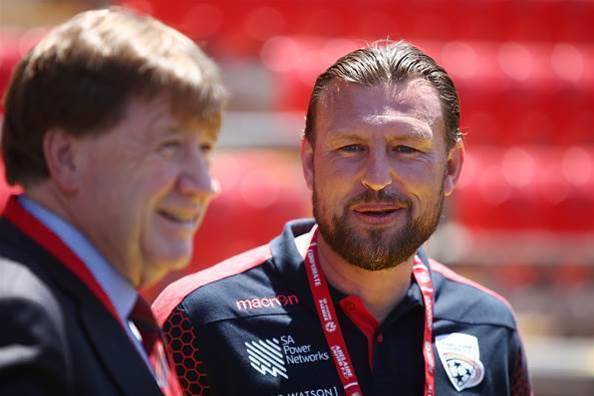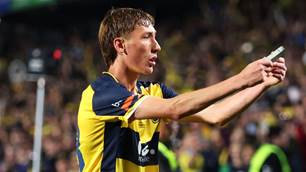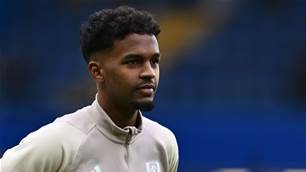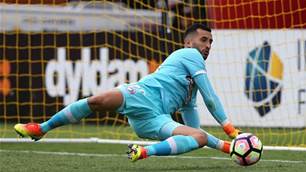If you thought today’s elite coaching courses were centered on cutting-edge tactics, session plans, and the latest formation fads, you’d only be scratching the surface, as FTBL found out.
In 2019, 16 successful men and women are taking the AFC/FFA Pro Diploma in this country.
Four modules across four cities across Australia, the course looks at what it means to lead as a coach in 2019.
Rather than a pure 'on the grass' coaching focus, the group is discovering insights into the application of a more nuanced, broader and thoughtful leadership mindset.
Yes, some of the traditional on the grass elements are part of the course. But it’s the focus on a growth mindset towards more effective leadership that is the biggest take out of this course for this next group of leaders in football.
Huss Skenderovic, the former Adelaide United W-League head coach and technical director at Ajman in the UAE is one of the 16 Australian coaches on the course led by the respected coach educator Sean Douglas.

“The ideology, based on feedback from past experiences, was that when you’re an ‘A’ licensed coach, you’re expected now to be competent on the grass with the process of coaching,” Skenderovic, now a technical director in the Victorian NPL with Dandenong Thunder, told FTBL.
“The rest is on the leadership concepts. Very little is done out on the park.
“Understanding your values was a huge part of the course. How you understand your values, how you impart them and do players know your values? And do you as a coach know the values of your players.
“That has nothing to do with the tactical or technical or physical side of the game.
“And it’s not just about players, it’s also about the staff within a football club, so the culture becomes strong.”
The Pro Diploma through AFC/FFA is a prized course with around 80 applicants whittled down to 16.
The first two modules have been run in Melbourne and Brisbane, and the final two are in Canberra and Sydney later this year.
Other students on this year’s course include Karl Dodd, Mel Andreatta, Kat Smith, Michael Bridges, John Kosmina, Hayden Foxe, John Anastasiadis, Jacob Burns, Chris Greenacre, Robbie Stanton, David Zdrilic, Jimmy van Weerun, Njegosh Popovich, and the Piddick brothers Grae and Adam.
A prime example of modern leadership is Liverpool manager, UEFA Champions League winner Jurgen Klopp.
Relationship building, motivation, personalizing your management approach to each player’s personality: attaining group buy-in needed to keep a group of professionals happy and heading in the one direction.
These aren’t necessarily outcomes you can attain by being only being a good coach on the track.
And in the modern game, there are assistants to run sessions. A leader like a head coach has a broader role and influence at a football club in the modern era.
“Klopp would know the players and would tap into their lives which develops a great bond between coach and player. He is able to facilitate that through really great leadership,” said Skenderovic.
“That co-relationship can get the best out of someone when you can relate to them, especially when things don’t go well.”

Karl Dodd agrees with Skenderovic that coaches are now seen as culture leaders at clubs and sporting organisations.
And those who understand this leadership concept can shape success, just as a CEO can at any large company.
“Credit has to go to Sean Douglas for how he is shaping the future of coach education in Australia,” Dodd, the national coach of Guam and a former A-League star in Brisbane, told FTBL.
“He has reviewed previous courses and significantly improved on them, he has brought in top-level consultants for leadership and management, which is what we are really looking for as head coaches.
“The environment that Sean has also created in the pro license allows people to be more open and honest with their reflections which is key for development."
In fact, what these coaches are taking onboard has ramifications for how the game’s leaders should be approaching culture and leadership.
At a time when real leadership at the national administrative level is sorely lacking, this is the sort of mindset the game desperately needs.
But as Skenderovic points out, the changes made in a coach’s attitude and demeanour need to real and not perceived as manufactured or fake.
“We’re really keen to see how much we take from this course and impact our environments and also football generally in this country," he said.
“We really need to come in now with a different mindset and a different style and nothing to do with the selfishness and poor qualities that surround our game.
“It’s about reflecting upon yourselves. How effective are we at giving feedback for example? When you return to your environment how you can change that mindset and bring about a positive culture and change from within?
“We need to drive that kind of leadership in Australia. And real leadership is real leadership, and that can be applied to many different parts of the game.
“Leaders of football and the impact they can have on the game is very important."
The Class of 2019 could well shape the future of our game for the better on and off the park.
Related Articles

Socceroo-in-waiting seals Championship deal

Fringe Socceroo swerves A-League to remain in Europe after Fulham exit













